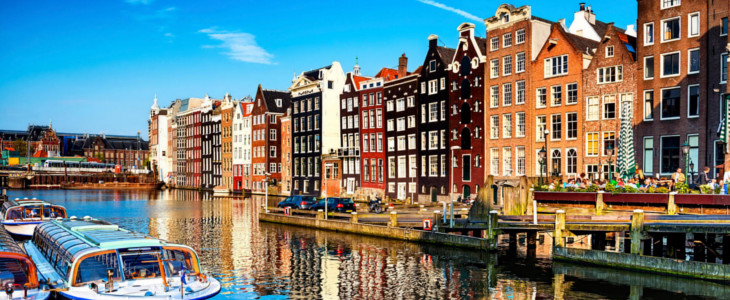Netherlands

Capital city: Amsterdam
Currency: Euro (€) (EUR)
Population: 17.1 million
Language: Dutch, Frisian & English
GDP $907 billion
The Netherlands (also known informally as Holland), is the main constituent country of the Kingdom of the Netherlands. “Netherlands” literally means “lower countries” and has low land and flat geography (only 50% of its land exceeding one metre above sea level). Since the late 16th century, large areas (polders) have been reclaimed from the sea and lakes, amounting to nearly 17% of the country’s current land mass.
The Netherlands has a long history of social tolerance and is generally regarded as a liberal country, having legalised abortion, prostitution, euthanasia, and drugs. In 2001, it became the world’s first country to legalise same-sex marriage.
Economic historians regard the Netherlands as the first thoroughly capitalist country in the world as in early modern Europe it had the wealthiest trading city (Amsterdam) and the first full-time stock exchange. The inventiveness of the traders led to insurance and retirement funds as well as phenomena such as the boom-bust cycle, the world’s first asset-inflation bubble (the tulip mania of 1636–1637).
In general, a Dutch company is subject to 25% corporate tax on its worldwide profits – which is quite high. What makes the Netherlands a tax haven though is that income from capital gains, dividends derived from qualifying subsidiaries, and income attributable to a foreign business enterprise, is exempt. In addition, several National and foreign companies (including Starbucks & Microsoft) are known to have special agreements with the Dutch tax service which gives them special lower tax rates and further exemptions.
"You’d be stupid not to try to cut your tax bill and those that don’t are stupid in business"
- Bono: U2




